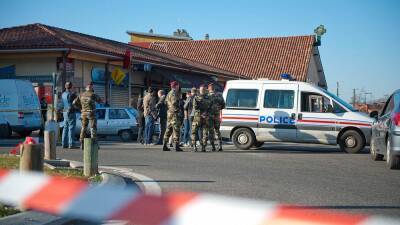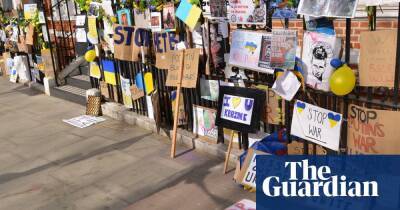Debunking the most viral misinformation about Russia's war in Ukraine
Even before Russia launched its assault on Ukraine, false claims and misleading rumours had been circulating online.
But as Russian forces have advanced further into Ukraine, the amount of online misinformation has skyrocketed.
Both Moscow and Kyiv have been guilty of spreading misinformation amid the online information war of propaganda. But individual social media users have also fallen victim to false rumours and amplified unfounded allegations.
In times of conflict and crisis, when people are hungry for details about the war in Ukraine, misinformation can be equally as viral as verified facts.
Here is a selection of some of the false claims that had been widely circulating and have since been debunked by fact-checkers.
Within hours of Russia launching its invasion, misleading videos of unrelated explosions had been seen by thousands of people.
One of the first videos that appeared on Twitter under the hashtag #нетвойне (#NoWar) falsely claimed to show a powerful blast in a Ukrainian city. The video has received more than 112,000 views.
But the footage actually dates from August 2015 and shows a deadly explosion at a storage facility in Tianjin, China.
Another misleading video -- shared widely on Facebook, Instagram, and TikTok -- shows footage of the fatal explosion at Beirut port in August 2020.
Users had falsely claimed that the video showed "Ukrainian headquarters" being bombed by Russian forces.
Videos of the deadly blasts in both Tianjin and Beirut have regularly been shared as misinformation during other explosions and will likely also be shared in the future.
Neither are related in any way to the Russian invasion of Ukraine.
Their virality is proof that misleading videos related to the war in Ukraine are being taken out
Read more on euronews.com























